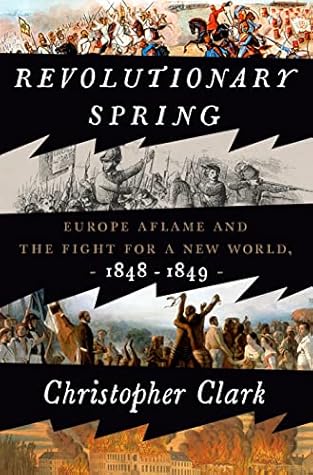More on this book
Kindle Notes & Highlights
Read between
August 2 - August 22, 2024
The choice of history as a genre enabled Amari to achieve effects that would have been denied, for example, to a novel, a play or an epic poem. He chose history because he believed that the consciousness of a nation was stored in its knowledge of its own past.[158] History released contemporaries from the tyranny of the present, implicitly posting a question mark over the present order of things.
Victor Schoelcher, who published the abolitionist tract De l’esclavage des noirs in 1833 after his return to Paris from a journey to Mexico, Cuba and the southern United States, knew all too well how difficult it was to overcome the inertia of a society that was aware of the iniquity of slavery but not sufficiently alarmed to act against it. The arguments against this institution, he wrote, were so well rehearsed and of such long standing that it was impossible to come up with new points that might catch the attention of the public. Europeans were easily roused to indignation by this or that
...more
This highlight has been truncated due to consecutive passage length restrictions.
As the revolution receded into the still very recent past, its charisma and its hold over the political imagination faded fast. In Paris, conservatives used the debates of the assembly to unpick the ‘principles of February’, focusing their efforts, for example, on extirpating the right to work, which had once been such a central preoccupation of the ‘social revolution’, from successive drafts of the new constitution.[118] Already in early June, the writer Fanny Lewald noticed, the word ‘revolution’ seemed to have fallen out of favour; instead, people spoke of the ‘occurrences’ or the ‘events’
...more
As for the members of the public who sat in the galleries cheering or whistling, these were not the representatives of a free public, capable of forming its own opinions, but ‘hired men’, and ‘friends and dependants of the ministers’ bearing tickets handed out by the government. Whereas ministers were greeted with loud applause as soon as they stood up to speak, interpellations or critical comments by deputies were drowned out by shouts, whistles and other signs of disapproval, so that it was sometimes impossible to carry on.
Reliable stenography was an important, if overlooked, aspect of this public resonance. Tachygraphy – the art of swift writing – was an ancient skill and parliamentary stenography was already established in eighteenth-century Britain, but it was only in 1848 that the broad outlines of a modern parliamentary stenographic service first saw the light of day in Paris. In the Constituent Assembly of 1848, two stenographers, a ‘rolling stenographer’ (sténographe rouleur) and a reviser (réviseur) perched on opposite sides of the tribune. The former succeeded each other in rotation, taking stenographic
...more
Like the words ‘history’ and ‘revolution’, the word ‘nation’ underwent a dramatic process of semantic inflation. People used it ‘with an almost universal confidence in its legitimizing power’.[139] It didn’t seem to matter that it signified contradictory things. It became a word through which time flowed. The path towards a fuller form of nationhood seemed for many people the only imaginable way into the future. In a commentary published on 22 April 1848, the Helsinki-based Finnish newspaper Suometar captured this sense of movement and destiny. The French, the Italians, the Germans, the
...more


